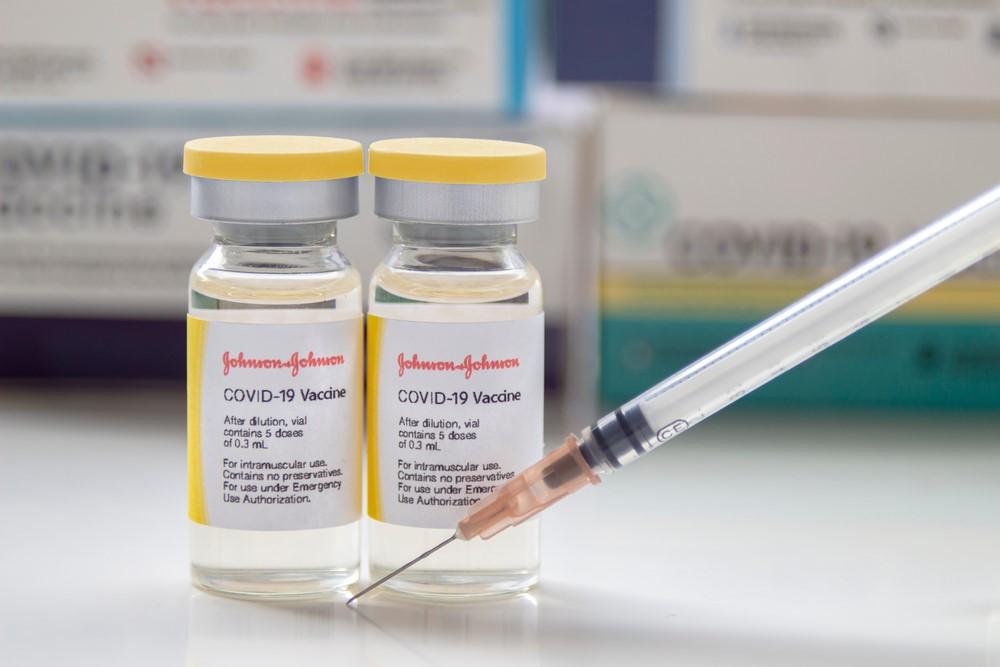
An Oregon woman in her 50s died after she developed a rare blood clot within two weeks of receiving a Johnson & Johnson COVID-19 vaccine, Oregon Health Authority officials said Thursday.
The development puts Oregon in the middle of a federal review of the vaccine. State public health officials suspended use of the vaccine on April 13 after the U.S. Centers for Disease Control & Prevention and Food and Drug Administration recommended that states temporarily stop using it after six women between the ages of 18 and 48 had also developed blood clots. The other fatality was a 45-year-old woman in Virginia, according to the CDC. That makes the Oregon woman the oldest.
The Oregon Health Authority said the woman received a dose of the Johnson & Johnson vaccine before the state’s suspension went into effect. Health authority officials found out about the death on Tuesday, two days after the CDC received notification through its Vaccine Adverse Event Reporting System, which collects information from health care providers about adverse health events after vaccinations.
Health authority officials stressed they don’t know yet whether the death was connected to the vaccine. The CDC has launched an investigation of the Oregon death and is also looking into the fatality and five other cases that occurred outside Oregon.
Health officials have stressed that these cases are extremely rare: Oregon has administered about 85,000 doses of the Johnson & Johnson vaccine out of 6.8 million doses nationwide.
The CDC’s Advisory Committee on Immunization Practices will review the cases and decide whether to continue using the Johnson & Johnson vaccine. A decision had been expected on Friday. It’s unclear whether this latest death will affect that timeline. News reports said officials were leaning toward resuming the vaccinations.
Dr. Shimi Sharief, senior health advisor with the Oregon Health Authority, said the state would follow recommendations from the CDC and has the “utmost confidence” the decision will weigh the risks and benefits. Sharief said she was unable to comment on whether the woman had underlying conditions. However, she did say the woman had symptoms that mirrored those of the other cases, including headaches, abdominal pain and shortness of breath.
The federal database has gathered information about 50,000 people who’ve suffered some kind of adverse effect after receiving one of the three COVID-19 vaccines. The information is self-reported by providers or others and the reports doesn't necessarily mean there is a direct link between the vaccine and the symptoms. Public health officials use the database to track vaccines and look for potential problems to flag and investigate further.
The Oregon Health Authority said federal officials learned about the Johnson & Johnson cases following treatment.
All of the women suffered a rare and severe type of blood clot known as cerebral venous sinus thrombosis in combination with low levels of blood platelets. The women in the first six cases saw symptoms emerge six to 13 days after vaccination.
Oregon officials declined to provide any details about the woman, including what county she lived in, citing health privacy regulations.
The state is continuing its vaccine campaign, using the Moderna and Pfizer vaccines, which health officials have determined are safe and effective.
Overall, Oregon has administered 1.4 million doses of Pfizer vaccine and 1.2 million doses of Moderna. Those two vaccines require two doses spaced several weeks apart, while the Johnson & Johnson vaccine requires just one dose.
Nearly 1.1 million Oregonians are fully vaccinated. Almost 1.7 million Oregonians have had at least one dose.
You can reach Ben Botkin at [email protected] or via Twitter @BenBotkin1.
